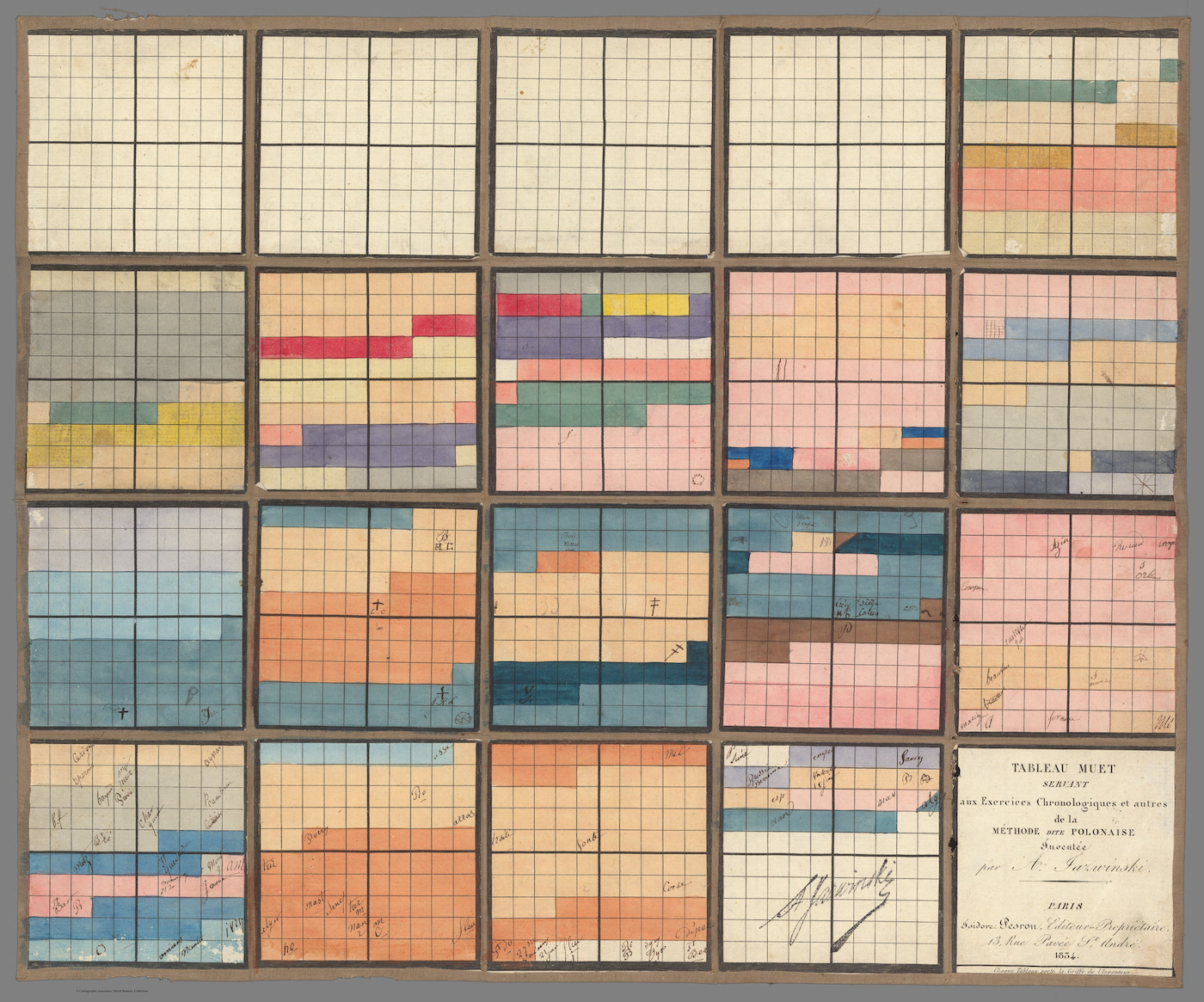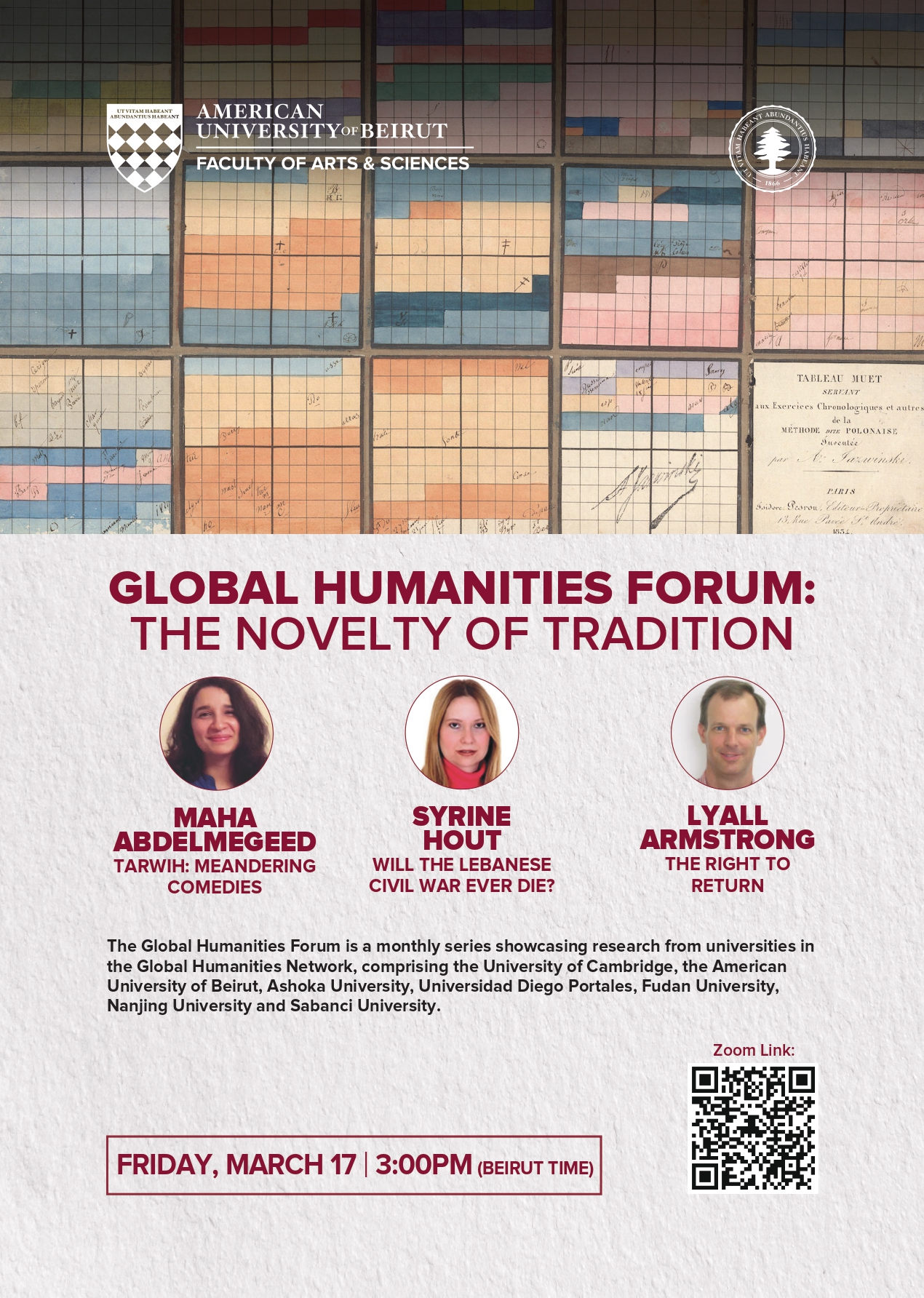


1. The Right to Return: Remarriage Laws in early Islam and Late Antiquity
Islamic law has distinct criteria guiding divorce and remarriage processes, including remarriage to a previous spouse. These laws are unlike the marriage laws of the societies in the Near East at the time of the rise of Islam. In this talk, I will explore the specificities of Islamic law on remarriage to a previous spouse and will place it in the context of other legal systems. I will argue that the Islamic rulings were generated within Arab/Muslim society with no direct connection to any other legal system.
Presenter: Lyall Armstrong is an assistant professor of history who specializes in early Islamic history and thought. He has published works on the growth of scholarly networks in the first two centuries of Islamic history, especially the quṣṣāṣ “storytellers.” He is currently researching marriage and divorce in early Islamic law.
2. “Tarwih”: Meandering Comedies in Nineteenth-Century Arabic
In 1889, Shaykh Hassan al-’Aalati published his multi-volume book Kitab tarwih al-nufus wa mudhik al-‘abus (The Souls’ Amuser and the Scowler’s Jester) . The title pays homage to Ibn Sudun’s (1407-1464) renowned Nuzhat al-nufus wa mudhik al-‘abus, changing just the first word in the title from “nuzha” (promenade in the sense of a walk, literal or figurative, taken for the purpose of amusement or diversion, in one word tarwih) to “tarwih” (amusement or diversion, the goal of the aforementioned promenade). The move functions to position al-’Aalati’s work within a tradition of comedies in Arabic, or literary “divertimento,” that Ibn Sudun’s name seems to have become a token for. Grappling with the textual links among this body of works, but with a specific focus on the intersection between al-’Aalati and Ibn Sudun, this paper explores questions of characterization and voice that carve paths for discovering Nahda/Mamluk entanglements.
Presenter: Maha AbdelMegeed is an Assistant Professor of Arabic Literature at the American University of Beirut. Her current research focuses on rethinking narratives of the rise of literary modernity in Arabic. She also studies the changing conceptions of Arabic language from the mid 18th century till the early decades of the 20th century.
3. Will the Lebanese Civil War Ever Die? The Contemporary Realities in/of Anglophone Writings and the Visual Arts
My research questions revolve around the project(s) of memory-making during different crises: First, how are memories of the Lebanese Civil War enhanced, refracted, diluted, and/or supplanted by the July 2006 war? Second, how do members/characters of different generations relate to recurrent national traumas? To answer, I discuss diasporic Anglophone Lebanese texts produced in the last 25 years, arguing that post-memory is impossible given the never-ending cycles of atrocities. Similarly, in my overview of the artistic fallout from the October 2019 revolution, I contend that cultural workers make fresh memories of more recent disruptive events, including the August 2020 Beirut Port Blast, in relation to earlier bouts of violence.
Presenter: Syrine Hout is Professor of English and comparative literature at the American University of Beirut. Publications include Post-War Anglophone Lebanese Fiction: Home Matters in the Diaspora (Edinburgh University Press, 2012) and Viewing Europe from the Outside: Cultural Encounters and Critiques in the Eighteenth-Century Pseudo-Oriental Travelogue and the Nineteenth-Century ‘Voyage en Orient’ (Peter Lang, 1997), in addition to numerous book chapters and journal articles. She is completing a monograph on literary multilingualism in diasporic Anglophone Lebanese fiction.
